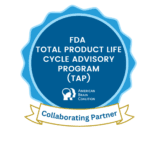Impulsivity and Compulsivity in SCAs
This study explores the role of the cerebellum in individuals with Spinocerebellar Ataxia and its relationship to impulsivity. The study aims to gain valuable insights into how the cerebellum participates in cognitive processes.
About the Study
Eligible Ataxia Types
All Spinocerebellar Ataxias (SCAs)
Type of Study
Research Study
Clinical Trial Phase
N/A
Age Range
Adult 18+
Study Start Date
7/1/2024
Estimated Completion Date
7/1/2027
IRB Approval #
AAAU9005(M00Y01)
Location(s)
Columbia University, Neurology Department
650 W. 168th Street
New York, NY
Contact Information
Hannah Lee
hhl2124@cumc.columbia.edu
212-305-9718
Yicheng Lin
yl5636@cumc.columbia.edu
646-237-7292
What does participation in the study entail?
The study aims to explore the underlying mechanisms contributing to impulsivity and compulsivity symptoms observed in patients with SCA, by examining the functional topographical characteristics of the cerebellum using fMRI signals during task. The significance of this research lies in its potential to elucidate the involvement of the cerebellum in processing reward networks and shed light on the mechanisms underlying these symptoms in SCA patients.
What are the potential benefits for participants?
A possible benefit of participating in this study is that others in the future may benefit from the results of this research study. There is no direct benefit to you.
What are the potential risks for participants?
Possible risks and discomforts of participating in this study are that some patients may experience discomfort during the fMRI recording. There have been no reported ill effects associated with fMRI exposure, and we have implemented stringent precautions, including the exclusion of individuals with potential metal hazards, controlled access to the examination room, and the consideration of participants with claustrophobia.
Is there financial compensation?
Yes. $75
Is there travel reimbursement?
No.
Who is eligible?
Any SCA patients who had no metal implantation.
View Other Research Opportunities
Further Development and Validation of the Cerebellar Neuropsychiatric Rating Scale (CNRS)
There are many scales that assess the disruption of drive, motivation, mood, impulsivity, anxiety,and social cognition, in patients with psychiatric illness. However, no single scale covers theissues that we have Read More…
Clinical Care of Ataxia Patients
The goal of this study is to better understand the clinical practices of providers caring for patients with hereditary ataxias. This includes geographic estimates of patient prevalence and prescription habits. Read More…
The role of the cerebellum in movement and cognition
The aim of this study is to characterize how Ataxia impacts motor control and certain aspects of cognition (such as language and decision making). Link to Enroll: http://ivrylab.berkeley.edu/participate.html About the Read More…










